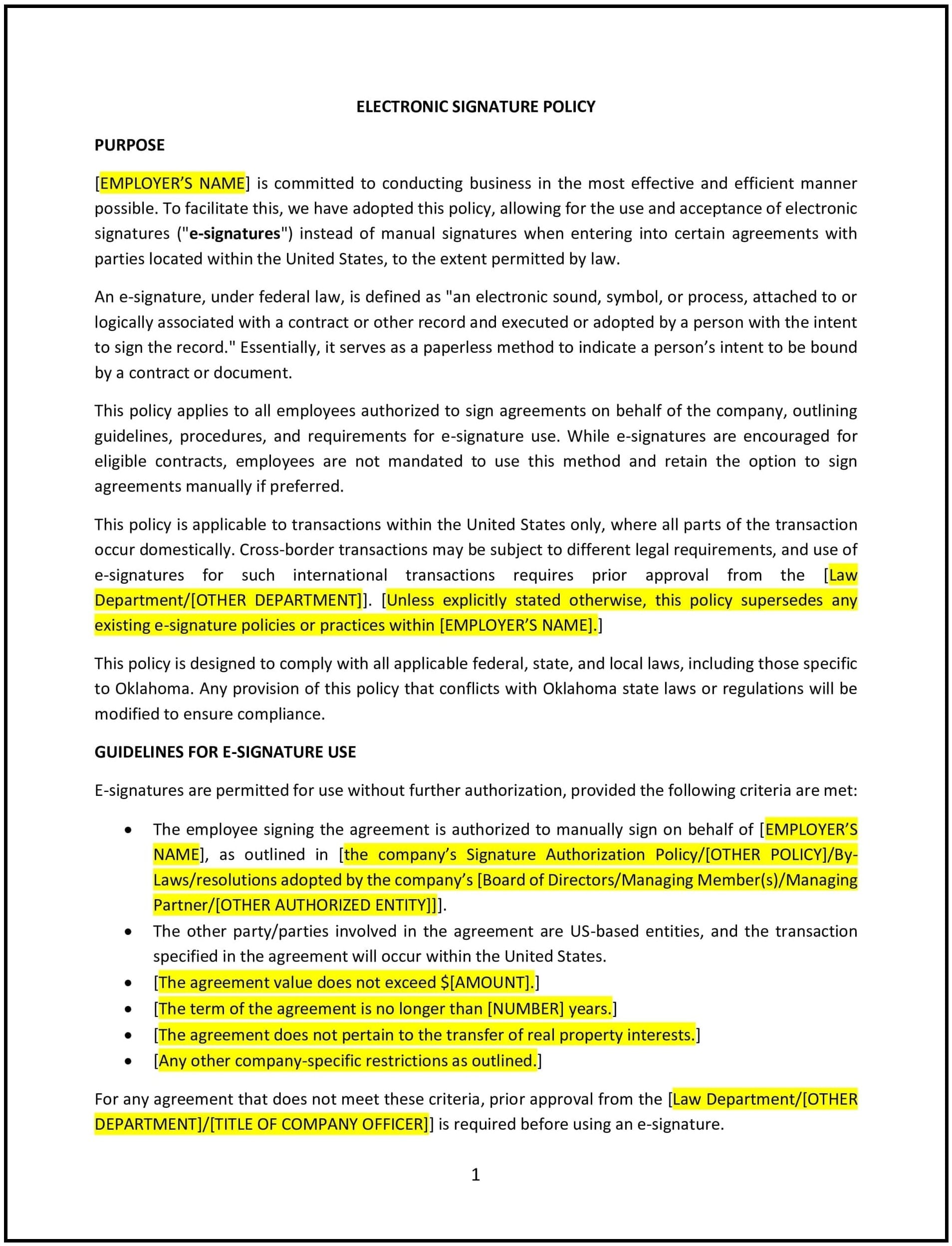Electronic signature policy (Oklahoma): Free template
Got contracts to review? While you're here for policies, let Cobrief make contract review effortless—start your free review now.

Customize this template for free
Electronic signature policy (Oklahoma)
This electronic signature policy is designed to help Oklahoma businesses establish clear guidelines for using electronic signatures in business transactions. The policy outlines legal recognition, security measures, and approval processes to ensure valid and enforceable e-signatures.
By implementing this policy, businesses can improve efficiency, reduce paperwork, and maintain secure digital transactions.
How to use this electronic signature policy (Oklahoma)
- Define acceptable e-signatures: Specify which electronic signature methods are valid, such as typed names, digital certificates, or authentication-based approvals.
- Establish authorization requirements: Identify who is authorized to use e-signatures and for which types of documents.
- Ensure security and verification: Require multi-factor authentication, encryption, or audit trails to confirm signatory identity.
- Address legal recognition: Align the policy with the Oklahoma Uniform Electronic Transactions Act (UETA) and federal Electronic Signatures in Global and National Commerce (ESIGN) Act.
- Outline storage and record-keeping: Specify retention periods and secure storage methods for electronically signed documents.
- Define exceptions: List any agreements that require physical signatures, such as real estate transactions or notarized documents.
- Review regularly: Assess the policy periodically to align with evolving digital signature technologies and legal requirements.
Benefits of using this electronic signature policy (Oklahoma)
Implementing this policy provides several advantages for Oklahoma businesses:
- Enhances efficiency: Reduces paperwork and speeds up contract execution.
- Strengthens legal enforceability: Ensures e-signatures comply with state and federal laws.
- Improves security: Protects business transactions with authentication and encryption.
- Supports remote work: Enables seamless approvals from multiple locations.
- Reflects Oklahoma-specific business considerations: Aligns with state-specific e-signature laws and industry best practices.
Tips for using this electronic signature policy (Oklahoma)
- Train employees: Educate staff on secure and proper e-signature usage.
- Implement approval controls: Require managerial or legal approval for high-value transactions.
- Monitor compliance: Regularly audit electronic signature usage to prevent misuse.
- Maintain clear audit trails: Ensure all signed documents are traceable and verifiable.
- Update security protocols: Adapt the policy to incorporate new authentication methods as needed.